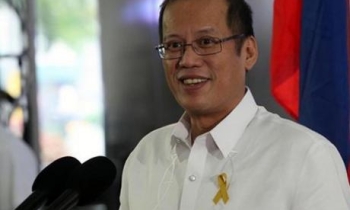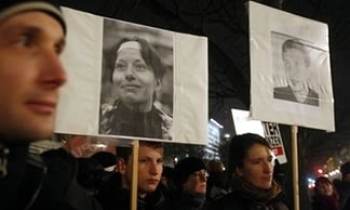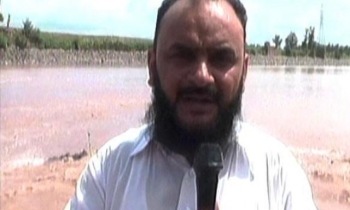IN EARLY 1990 I visited Eastern Europe for the first time, traveling in Hungary, Romania, and what was then Czechoslovakia just a few months after the revolutions that had freed them from Communist dictatorship.
One indelible lesson from that trip was the remarkable role that had been played by the US government's broadcast services -- Voice of America and Radio Free Europe/Radio Liberty -- in providing a lifeline to people trapped behind the Iron Curtain. Several times in private homes I was shown the shortwave radio on which a family had for years picked up the American-produced programs that were their only reliable source for news and analysis, especially about events in their own country.
Naturally the Communist thugs who ruled in Budapest, Bucharest, and Prague -- and the thugs in Moscow who ruled over them -- hated these American voices of freedom.
``One of the most fervent wishes of the KGB," Anatoly Kuznetsov, a Soviet author who defected to the West in 1969, remarked years ago, ``is to destroy Radio Liberty." Today, the KGB no longer exists. But at least one former KGB agent, Russian President Vladimir Putin, is apparently still pursuing the old vendetta.
The Washington Post reported last week that, under pressure from Moscow, scores of radio stations have stopped airing the Russian-language news programs produced by Voice of America and Radio Free Europe/Radio Liberty. With hundreds of journalists across the country, and a combined network of more than 70 affiliates airing their stories and commentary, the US-sponsored broadcast services have been among the largest and most independent news organizations in Russia. ``In a country where the news media increasingly avoid controversial subjects," the Post noted, ``millions of Russians had made the broadcasts a listening staple."
But over the past year, the number of stations carrying their broadcasts has collapsed, sinking from more than 70 to just nine. Beginning last September, regulators from the Ministry of Culture descended on the stations, warning them that they were likely to lose their broadcast licenses if they continued airing material from Voice of America and Radio Free Europe/Radio Liberty. Nearly all of them capitulated. The few stations still carrying their shows are mostly in Moscow and St. Petersburg, where their influence is minimal. But in the far-flung regions beyond Russia's two biggest cities, where they were an essential source of information, they are no longer being heard.
So it goes in Putin's Russia, where the stifling of independent media voices is now routine. Since coming to power in 1999, Putin has seized control of the country's major TV channels, all of which are now under the thumb of the government or its allies. Local media outlets rarely challenge local governors, most of whom are Kremlin loyalists -- especially since Putin abolished the popular election of regional officials two years ago.
A bill now before the Russian Parliament would broaden the crime of ``extremism" to include media criticism of public officials. If convicted, journalists could be imprisoned for three years and their publications closed. Yet crimes already on the books are not always prosecuted zealously: Since Putin became president, 12 journalists have been murdered in contract-style killings, including American Paul Klebnikov, the 41-year-old editor of Forbes Russia. To date, no one has been brought to justice in any of the murders.
The rollback of press freedoms is of a piece with Putin's deepening authoritarianism. Nearly all serious opposition to Putin has been broken or marginalized. Prominent businessmen unwise enough to oppose him have been prosecuted and imprisoned, or forced to flee the country. Neighboring countries have been outrageously bullied. Putin has even gone out of his way to defend Soviet-era crimes like the occupation of the Baltic states in 1941.
``Just as in the old days," Garry Kasparov, the chess champion and Russian democracy activist, wrote in a New York Times column on Monday, ``Moscow has become an ally for troublemakers and anti-democratic rulers around the world. Nuclear aid to Iran, missile technology to North Korea, military aircraft to Sudan, Myanmar and Venezuela, and a budding friendship with Hamas: These are the West's rewards for keeping its mouth shut about human rights in Russia."
The West ought to find its voice -- particularly the American president who keeps saying that the promotion of freedom is the cornerstone of his foreign policy. The G-8 summit in St. Petersburg this weekend is supposed to be a gathering of democratic allies, but Russia is no longer a democracy, and it doesn't act like an ally. Putin is counting on the West not to embarrass him by making a fuss about his creeping dictatorship. As a rule, guests are not supposed to scold their hosts. This is one time when that rule should be broken.
Jeff Jacoby's e-mail address is jacoby@globe.com.









